Understanding the Role of a Transport Manager
The transport manager plays a crucial role in ensuring the smooth operation and compliance of transport activities within a business. Responsible for overseeing fleet operations, a transport manager ensures that all vehicles and drivers comply with transport regulations and standards. This includes managing logistics, ensuring safety, and maintaining records. The importance of this role cannot be understated in the transport industry.
Key Responsibilities of a Transport Manager
A transport manager is tasked with a variety of responsibilities that ensure the effective management of a fleet. Key duties include maintaining compliance with transport legislation, managing budgets, and planning efficient routes. Furthermore, a transport manager is responsible for overseeing vehicle maintenance and ensuring that all drivers are adequately trained and adhere to safety standards. By fulfilling these responsibilities, a transport manager helps to optimise operations and reduce costs.
The Importance of Compliance
Compliance is a significant aspect of a transport manager’s role. Ensuring that a company’s fleet adheres to legal and environmental standards is essential in avoiding fines and maintaining a good reputation. This involves keeping up to date with changes in legislation and implementing the necessary measures to ensure compliance. The transport manager must regularly audit fleet operations and maintain records to demonstrate compliance with the relevant authorities, such as the Department for Transport.
Skills Required for a Successful Transport Manager
To effectively manage a transport operation, a transport manager must possess a range of skills. These include strong organisational and logistical planning skills, excellent communication abilities, and a robust understanding of transport regulations. Problem-solving skills are also essential, as transport managers must often make quick decisions to resolve issues that arise. Moreover, leadership skills are crucial for managing a team of drivers and administrative staff, ensuring that everyone works towards the common goal of efficient and compliant transport operations.
Training and Certification for Transport Managers
Becoming a transport manager requires specific training and certification. In the UK, this often includes obtaining a Certificate of Professional Competence (CPC) in transport management. This qualification demonstrates a thorough understanding of transport regulations and operational management. Many transport managers also pursue additional training to stay updated with industry trends and changes in legislation. Resources like the Transport Managers Notes for Guidance provide valuable information for those in this role.
For those interested in pursuing a career as a transport manager, there are various pathways to explore. Some individuals start as drivers and gradually move into management roles, while others may enter the field through specialised education and training programs. Regardless of the path taken, gaining practical experience and developing a deep understanding of the transport industry are crucial steps in becoming a successful transport manager.
Book a Free Compliance Review
Get a free 30-minute review of your fleet compliance. Contact us today.
FAQs about transport manager
- What is transport manager?
- transport manager explained for UK fleets, in clear, non-technical language.
- Do I need transport manager for my operation?
- Most operators benefit when compliance, risk and cost justify it; speak to a transport professional.
- How much does transport manager cost?
- Costs vary by fleet size and scope. Request a tailored quote.
- Who regulates this?
- In the UK, guidance is provided by GOV.UK, DVSA and the Traffic Commissioners.





